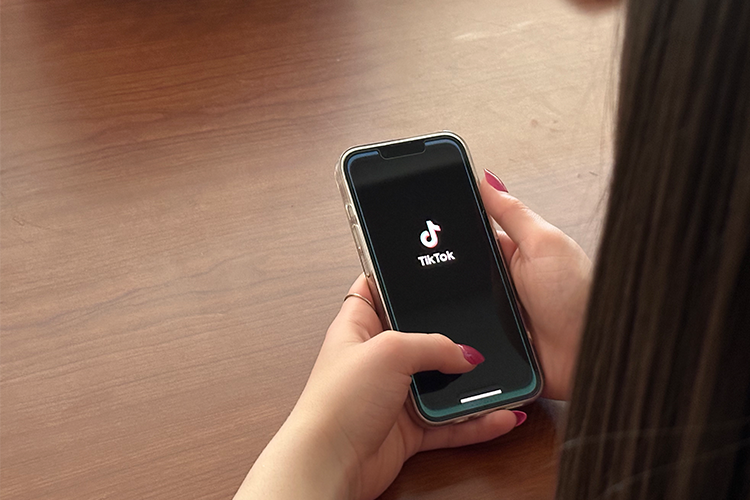
TikTok continues to have a chokehold on the citizens of the U.S., but will the platform be forced to let go? photo by Ravi Apte
Recently, the House of Representatives passed a bill that could eventually ban TikTok in the United States.
The famous social media platform TikTok was released during September 2016. Since its release, the platform has drawn in over 1 billion users worldwide. Over 5 million businesses use TikTok as a means to advertise their products and countless individuals use TikTok to generate primary income. Over time, this social media platform has only grown in popularity and scale. However, Congress has taken the fate of this platform and its users into their own hands.
Researchers have begun to address the harmful effects the app has on young users and the security threats it poses for all consumers. The New York Times states that, recently the United States government has shed a light on the security leaks across the platform. Officials explain that when users open TikTok, the app collects valuable information such as the direct location of the user, their IP address, search history, and cookies. While there are many other apps and social media platforms that collect consumer information, the U.S. government is especially concerned that the Chinese government is collecting U.S. citizen information on a daily basis through TikTok.
TikTok is a Chinese video-hosting company that is owned by ByteDance. ByteDance is a company that generates platforms including TikTok and another app called Douyin. On average, the everyday TikTok user watches 82 minutes worth of content a day. It has been brought to the attention of U.S. government officials that it is very possible that vital information could be shared with China’s officials. The most interesting and influential factor within this debate is that the country of China has banned TikTok from local users. Instead, they use Douyin. Douyin is monitored and censored by the Chinese government, unlike how TikTok is in the U.S. If a person of importance and their information gets leaked across the platform, the Chinese government could obtain information on the U.S. Recently, the House of Representatives voted in favor of the law that would eventually ban TikTok if it was accepted by the other branches of the U.S government.
Feelings around the potential ban vary from person to person. Jon Poole, Assistant Principal at Thomas Jefferson High School, is in favor of the ban. “If TikTok is banned, society would benefit greatly. Most kids would get about 22 hours of their life back each day,” he argued. One point of view students tend to share is that TikTok is a platform that generates unique and creative content. Through TikTok, people can be inspired or entertained during their down time. It’s very likely that if TikTok was banned, another app similar to the platform would be created and screen times would bounce back yet again. As TJ sophomore Marin Herbst explained, “I understand why they are trying to ban it because of security reasons, but I feel it won’t be very effective if they ban it.” In this situation, however, the main concerns of government officials are security risks.
Is the beloved app of TikTok coming to an end in the U.S.? Or will the app continue to have a chokehold on citizens’ screen times? Only time will tell and the clock is ticking for TikTok.